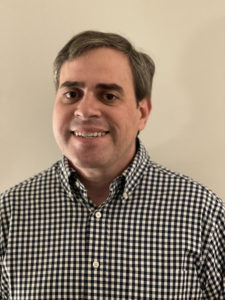
By Dan Horowitz
At first glance, my decision to become a member of the board of directors of the Kaiserman JCC may seem odd. After all, I am raising my family in Wilmington, where we are active members of the Siegel JCC. When I shared this news with Siegel JCC CEO Ivy Harlev, she gave me a puzzled look and said, “But you still live and work here?”
As I explained, the Kaiserman JCC is where my passion is and where I can do the most good. I basically grew up there: I went to Kaiserman’s preschool and camp as a child, and they gave me my first job as a seventh-grader when I became scorekeeper for the basketball leagues. In high school, I went on to work at the control desk, front office, camp and the afterschool program.
I learned all kinds of life lessons, such as the importance of treating the maintenance staff with dignity and respect and how to get along with a difficult boss. I also felt a huge sense of accomplishment when I was able to earn enough money to pay for a foreign exchange trip to France entirely on my own.
In short, I wouldn’t be the person I am today without the JCC, and joining the board feels like a homecoming. I also believe that serving on the board embraces the concept of philanthropy, which is defined as, “the desire to promote the welfare of others, expressed especially by the generous donation of money to good causes.”
My knowledge of the Kaiserman JCC’s history runs deep, and having another community as a basis for comparison has been helpful.
The two Jewish communities are extremely different: Wilmington has a small but close-knit Jewish community with only a few synagogues and a single fledgling day school, but the thriving Siegel JCC feels like the true center of the Jewish community. The Kaiserman JCC is part of a community that has a plethora of specialized Jewish institutions that take on many functions that are often handled by the JCC in smaller communities like Wilmington.
This has required the Kaiserman JCC to reinvent itself to demonstrate its continued relevance to both the surrounding community and its institutions. A good way to do that is to approach the other organizations in the community as collaborators rather than competitors and help them fulfill functions that would not be possible or practicable for them to fulfill on their own.
For example, it wouldn’t make sense for an Orthodox shul to build a swimming pool so that congregants that cannot swim with members of the opposite sex can have a place to swim, but partnering with the JCC would.
The abundance of specialized Jewish institutions arguably makes the traditional “town square” function of a JCC even more important: Without a common gathering place, there’s a risk that too much of a silo effect will set in, and people at different points on the Jewish communal spectrum won’t have the opportunity to get to know each other and appreciate each other’s perspectives.
Before joining the board, my knowledge of the happenings at the Kaiserman JCC consisted mostly of Exponent headlines that most of you are familiar with. Now that I have gotten a deeper understanding of the current state of the institution, I am optimistic about its future. As difficult as it was to read about the layoffs at the beginning of the pandemic, I now see that as the turning point that will result in the JCC emerging from the pandemic stronger than it went into it.
There is still much work to be done, but I’m encouraged by what I’ve seen so far and look forward to charting the path forward along with my fellow board members and new CEO Alan Scher.
We still have some open seats at the table, though, and I’d love nothing more than for some of my fellow “alumni” to join us. As we celebrate the Kaiserman JCC’s 50th anniversary, to all those that were once a part of this great institution and to those that never have been, I say, “Welcome home.”
Dan Horowitz is an attorney in Delaware.






